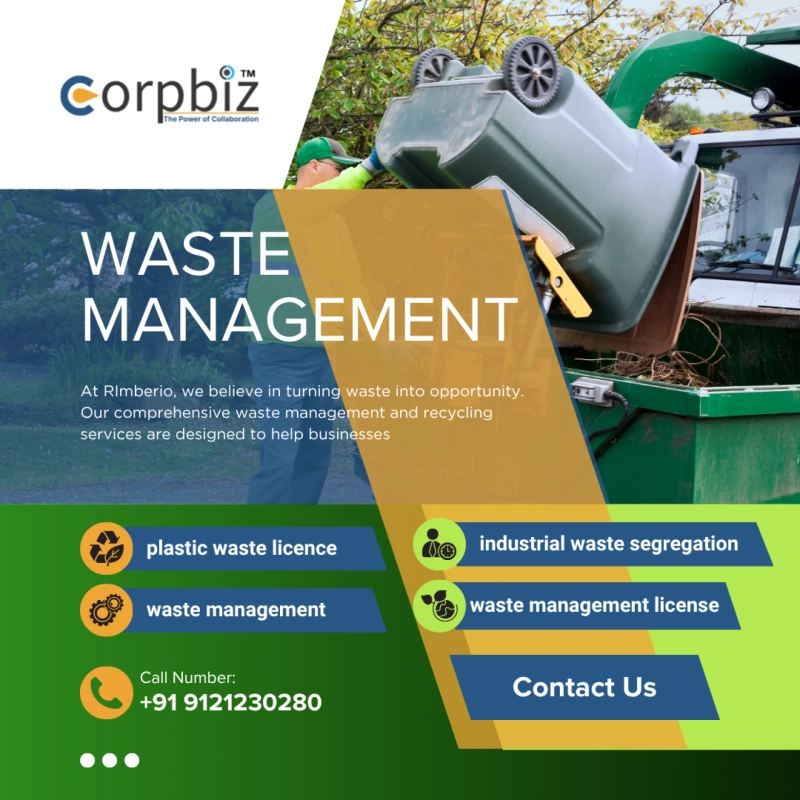As businesses grow and expand in 2025, environmental responsibility is becoming more critical than ever. Governments worldwide, including India, are tightening regulations to ensure that industries minimize their ecological impact. One of the most important steps businesses can take is to obtain the necessary environmental licenses. These licenses not only help companies comply with laws but also promote sustainable practices that benefit the environment and society.
In this article, we will explore the top environmental licenses required for businesses in 2025. We will also discuss key topics such as the plastic waste licence, advantages of waste management, waste management license, and industrial waste segregation to give you a comprehensive understanding of how these elements contribute to responsible business operations.
Why Environmental Licenses Matter
Before diving into specific licenses, it’s essential to understand why environmental licenses are necessary. These licenses ensure that businesses operate within legal environmental standards, preventing pollution and encouraging sustainable use of natural resources. Without these licenses, companies risk hefty fines, legal challenges, and reputational damage. Moreover, environmentally compliant businesses often gain the trust of consumers, investors, and partners.
Top Environmental Licenses for Businesses in 2025
1. Plastic Waste Licence
With the global concern over plastic pollution reaching new heights, a plastic waste licence has become mandatory for businesses dealing with plastic manufacturing, recycling, or disposal. This license regulates how plastic waste is handled, ensuring proper collection, segregation, and recycling.
The plastic waste licence helps businesses:
- Comply with national plastic waste management rules
- Promote recycling and reduce plastic landfill
- Avoid penalties related to plastic pollution
Obtaining this license involves submitting a plan for plastic waste management, adhering to prescribed standards, and periodic reporting to environmental authorities.
2. Waste Management License
A waste management license is crucial for companies generating solid or hazardous waste. This license covers the collection, storage, transportation, treatment, and disposal of waste. Proper waste management minimizes health risks and environmental contamination.
Advantages of having a waste management license include:
- Legal authorization to manage waste responsibly
- Access to government support and incentives for waste reduction
- Increased operational efficiency through systematic waste handling
In 2025, governments are emphasizing strict monitoring of waste management licenses, encouraging businesses to adopt eco-friendly technologies and processes.
3. Industrial Waste Segregation License
Industries produce various types of waste – hazardous, non-hazardous, biodegradable, and recyclable. The industrial waste segregation license ensures that companies segregate waste at the source before treatment or disposal.
Benefits of industrial waste segregation include:
- Easier recycling and reuse of materials
- Reduced risk of hazardous contamination
- Compliance with environmental regulations
Businesses applying for this license must demonstrate effective segregation processes and worker training on waste handling. This license is a key step in reducing environmental pollution and conserving resources.
Advantages of Waste Management for Businesses
Implementing proper waste management, backed by necessary licenses, offers multiple advantages:
- Cost Savings: Efficient waste segregation and recycling reduce disposal costs.
- Environmental Protection: Minimizes pollution and conserves natural resources.
- Regulatory Compliance: Avoids penalties and legal issues.
- Corporate Social Responsibility (CSR): Enhances brand reputation and attracts eco-conscious customers.
- Health and Safety: Reduces health risks to workers and nearby communities.
In 2025, businesses adopting strong waste management systems position themselves as leaders in sustainability, gaining a competitive edge.
How to Obtain Environmental Licenses
Getting the right environmental licenses involves:
Understanding Regulatory Requirements: Each license has specific criteria depending on the business type and location.
Preparing Documentation: This includes waste management plans, environmental impact assessments, and pollution control measures.
Application Submission: Submit the application to the relevant pollution control board or environmental authority.
Compliance and Monitoring: Once approved, businesses must regularly comply with license terms and submit reports.
Renewal and Updates: Licenses usually require periodic renewal and may need updating if business operations change.
Final Thoughts
In 2025, environmental licenses such as the plastic waste licence, waste management license, and industrial waste segregation license are no longer optional but essential for businesses. They represent a commitment to sustainable development, legal compliance, and social responsibility.
By prioritizing environmental licensing and adopting efficient waste management strategies, companies can reduce their ecological footprint, avoid legal troubles, and build trust with customers and stakeholders. If you are a business owner or manager, start the licensing process early to stay ahead and contribute to a greener planet.


